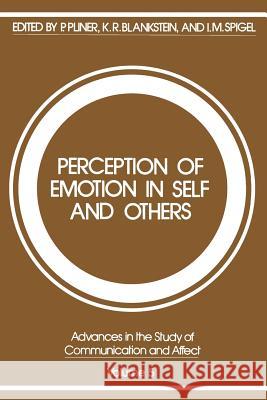Perception of Emotion in Self and Others » książka
topmenu
Perception of Emotion in Self and Others
ISBN-13: 9781468435504 / Angielski / Miękka / 2012 / 204 str.
Kategorie BISAC:
Wydawca:
Springer
Seria wydawnicza:
Język:
Angielski
ISBN-13:
9781468435504
Rok wydania:
2012
Wydanie:
Softcover Repri
Numer serii:
000224580
Ilość stron:
204
Waga:
0.30 kg
Wymiary:
22.86 x 15.24 x 1.17
Oprawa:
Miękka
Wolumenów:
01
Dodatkowe informacje:
Wydanie ilustrowane











